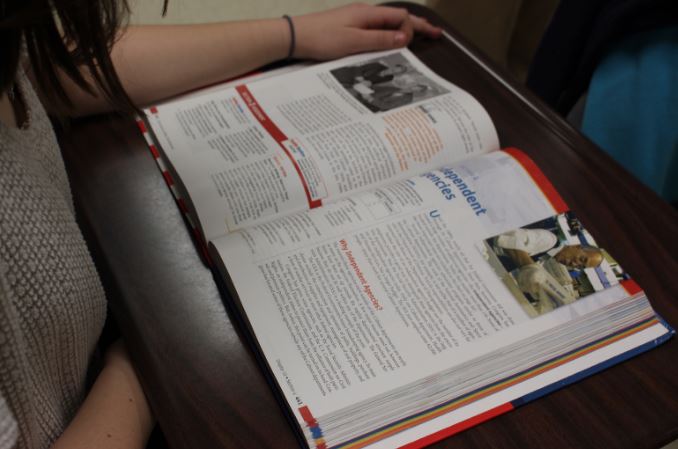Civics class added to graduation requirements
Freshmen include the first class to need the new civics requirement credit for graduation.
The school has a new graduation requirement, where students in the Class of 2020, and following classes will take a mandated civics course. The school will offer two courses: American Politics and AP Government and Politics to fulfill this credit.
On August 25, 2015, a legislation passed, where Illinois high school students have to take a civics course; however, this only affects the current freshmen class.
The American Politics course, which provides students a more hands-on learning environment covers issues in both the government and politics. While, AP Government and Politics, provides students the ability to develop an analytical perspective of the government, where they can also gain college credit through the annual AP exams held in May.
“We are preparing you to go out and vote, to be informed citizens in our democracy,” said Ms. Whitney Wilda, who’s taught at Central for nine years and is a current American Politics teacher.
Both classes will last for one semester and help students learn how to become a dutiful citizen in society. The classes will focus and help students learn about the government, discuss current issues, service learning, and simulations.
Last summer, the Social Studies Department made changes to the two classes, in order to fit the new curriculum. In American Politics, the department added a Civics Engagement Portfolio, where students put together everything they learned, and students get to pick certain issues to talk about and make it into a book at the end of the semester.
“Our whole goal is to get everyone’s feet wet in the political process, to hopefully, then be prepared to make informed decisions in a couple of years,” Ms. Wilda said.
Currently, the school requires 2.0 Social Studies credit, including World Cultures or World History course and an American History course with the passing of a Constitution test. Now, the new requirement will provide students 0.5 credit. Along with that, students will have to fulfill a Consumer Education credit either during the school year or during summer school.
However, this new requirement might conflict with students’ schedules and the classes they want to take. For example, some students might take AP European History or other Social Studies courses instead of American Politics their sophomore year. This means they’ll have to fulfill their Civics requirement in their junior or senior year, which will take room for another class they might want to take.
“I don’t really like politics, but I think we can get smarter, politically, and in the future, with how we make our decisions,” said Sara Lian, freshman.
While another graduation requirement may limit potential electives, most freshmen agreed that the civics aspect is meaningful and useful.
“I don’t really have any feelings about it, but I think it’s necessary because I feel like many people don’t really know about these issues,” said Catherine Dolan, freshman.
The goal of this Civics requirement is to help students learn about the U.S. constitutional system and help students become better citizens in society.
“I think it’s more important now, more than ever to make sure our students are educated about the world in which they live and really, that’s the bottom line is being educated in our democracy,” Ms. Wilda said. “Democracy is a verb and what that means is it takes humans to make it work. Our government only works because humans make it work.”
Although some students are hesitant about this class, they can see the benefits in taking this class because they’re able to learn more about the government and educate themselves.
“I think this can definitely benefit [students] because sometimes I feel like when I’m talking to somebody, especially adults I sound misinformed because I don’t know the information and the facts,” Dolan said. “I think that’s an issue with our generation; we don’t really spend time watching the news as much, so we need to learn about these important issues.”












